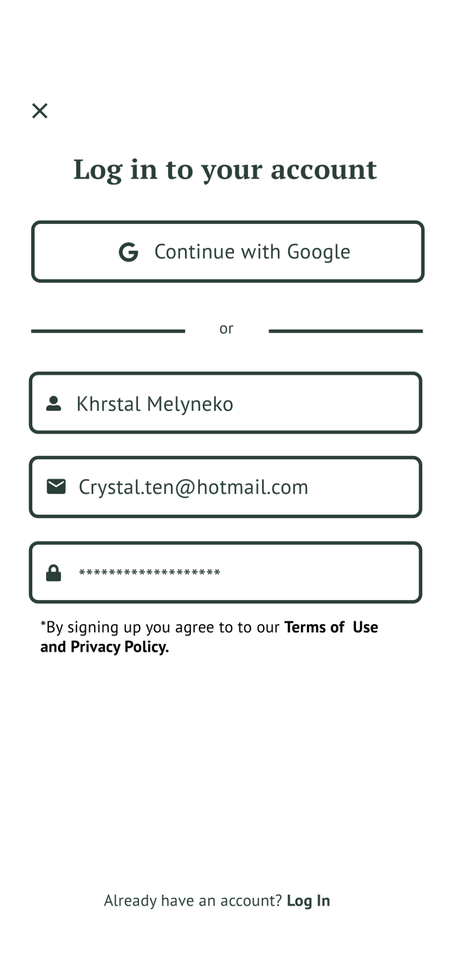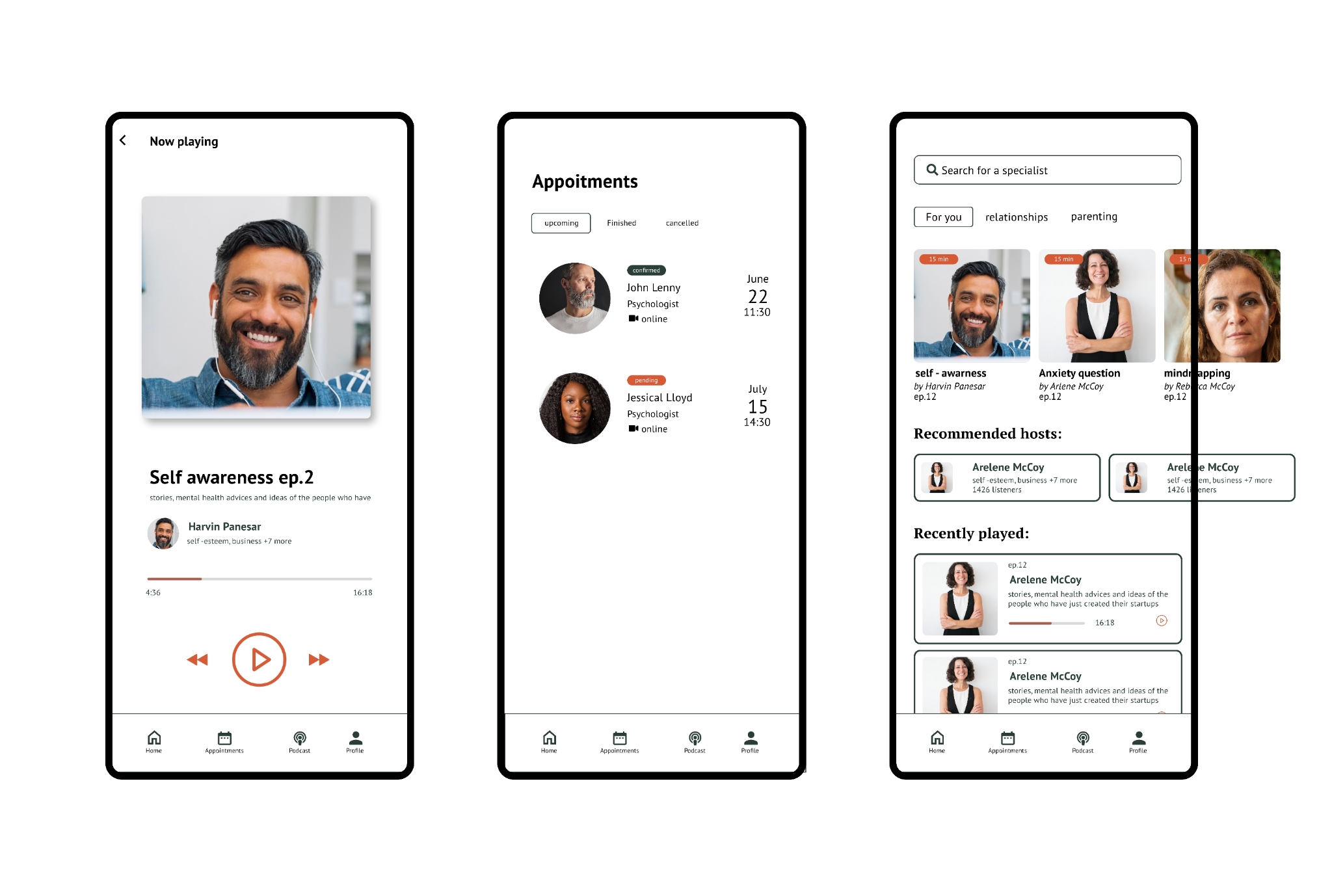

Mindmap is a digital platform designed to provide a hub for mental health resources, including therapy and online podcasts, organised in a visually appealing way.
Product Designer
In the context of "the hub for mental health through therapy and online podcasts," a mind map platform could offer a visual representation of various topics related to mental health, such as different types of therapy, self-care practices, and mental health podcasts. Users could explore different areas and easily navigate to related resources, gaining a better understanding of how they all connect. The platform could also offer tools for users to create their own mind maps, allowing them to customize their mental health journey and track their progress. By providing a comprehensive and visually appealing resource for mental health support, a mind map platform could be a valuable tool for individuals seeking to improve their mental health through therapy and online podcasts.
The mental health app market has seen significant growth in recent years, with an increasing number of people seeking mental health support through mobile apps.
Overall, the mental health app market is expected to continue to grow in the coming years, with increasing demand for accessible and convenient mental health support.
Creating a mental health app can be challenging and there are several potential problems and pain points that developers and designers should be aware of.
Overall, creating a mental health app requires careful planning, design, and development, as well as a deep understanding of user needs and regulatory requirements. Addressing these potential problems and pain points can help to ensure that the app is effective, safe, and successful in meeting the needs of users.
The design process for developing mindmap involves a careful and iterative approach. It starts with defining the problem, researching and analysing the target audience, and creating user personas. Based on this information, the ideation and concept development phase begins.
The initial concepts are prototyped and tested through user feedback, and the design is refined and iterated upon. Once the design is finalised, implementation and launch take place, including testing for bugs and errors. Finally, ongoing monitoring and improvement is essential to ensure that the app meets the users' needs and remains effective over time. Overall, the design process is focused on creating an engaging and effective app that supports users' mental health needs.
Online therapy is a growing industry, with the global online therapy market expected to grow at a CAGR of 15.6% from 2021 to 2028. (Source: Grand View Research)
These statistics demonstrate the growing popularity and effectiveness of mental health podcasts as a means of providing information, support, and guidance for those seeking mental health resources. With the increasing accessibility and prevalence of podcasts, it's likely that mental health podcasts will continue to grow in popularity and become an increasingly important tool for those seeking support and information related to mental health.

The solution for the mindmap app was to integrate it as a feature within a comprehensive mental health app that also included online therapy and a library of mental health podcasts. The mindmapping tool served as a hub for users to organize their thoughts and goals, while also being able to access online therapy and mental health podcasts for additional support and resources.
This comprehensive mental health app was designed with a user-centered approach, incorporating user feedback and preferences into the design. It offered a simple and intuitive user interface that allowed users to easily navigate and access the various features.
The online therapy feature offered a range of therapeutic modalities, such as cognitive-behavioral therapy (CBT) or mindfulness-based stress reduction (MBSR), and allowed users to schedule appointments with licensed therapists. The library of mental health podcasts offered a wide range of topics, including mindfulness, anxiety, depression, and relationships, and was regularly updated with new content.
Overall, this solution provided users with a comprehensive and accessible mental health resource, with a range of features and tools that catered to their individual needs and preferences. Regular user testing and feedback was used to continually improve and refine the app over time, ensuring that it continued to meet the evolving needs of its users.







